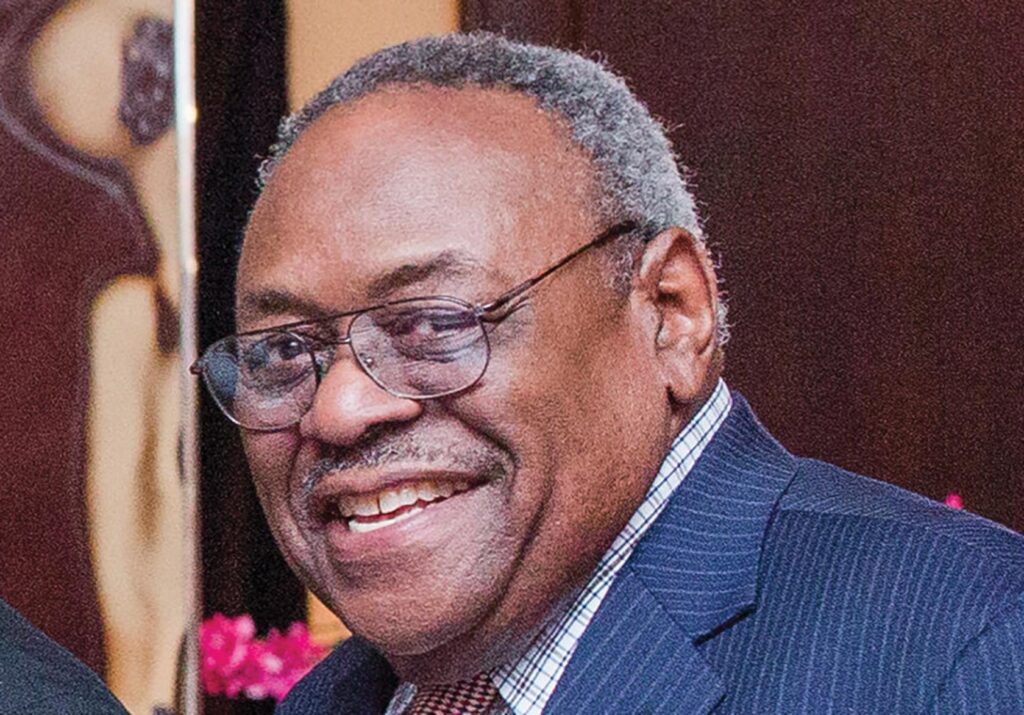
William H. Dilday Jr., a long-time Boston resident and trailblazer in American television history, died July 27 in Newton due to cerebral herniation following a fall. He was 85.
He is remembered as a pioneer who integrated American television and advocated for diversity and representation in the media, his family said.
“The country will remember him as a pioneer who paved the way for people of color to enter the broadcast industry,’’ said James S. Dilday of his brother. “I will remember him as my big brother who was always there to give me a pat on the back and a helping hand when I needed it.”
Born on September 14, 1937, William Dilday graduated from English High School and received his bachelor’s degree in business administration from Boston University. He served in the U.S. Army from 1960 to 1962 and was stationed on Governor’s Island in New York.
Dilday’s career in television began in 1962 when he became a personnel director for WHDH-TV. A decade later, he was hired to run WLBT-TV in Jackson, Mississippi, becoming first black general manager of a television station in America. This monumental achievement paved the way for greater diversity and much-needed representation of Black Americans in an industry long criticized for its lack of diversity.
Back when Jackson had only two commercial TV stations, WLBT was one of them. However, in 1964, the United Church of Christ sued the station after one of its anchors made fun of Black protesters demonstrating against the station’s discriminatory policies during a 1960 civil rights demonstration.
In a June 1969 landmark decision, Judge Warren E. Burger, who would later become chief justice of the United States, wrote that the station’s owner, Lamar Life Insurance Co., had lost its right to broadcast.
The Federal Communication Commission granted Communications Improvement Inc, a newly established nonprofit organization, temporary permission to oversee the television station’s operations. The organization’s board included individuals from various races and backgrounds responsible for appointing a suitable candidate to lead the station. Dilday was selected to lead the station.
Dilday’s appointment was a direct response to the Kerner Commission that the White House established to investigate the causes of civil unrest and race riots in America during the 1960s. The commission found that poverty and institutional racism were the root causes of the riots, and noted that white perspective skewed news media coverage.
Dilday relocated his young family to Jackson, Mississippi, despite the potential risks involved in overseeing WLBT. He instituted a groundbreaking concept of merging black and white children into the station’s first integrated children’s show. He also appointed a Black man and a white woman as co-anchors for the evening news program, breaking down the barriers of racial segregation and promoting harmony and inclusivity.
Dilday’s decisions were not always popular, such as his refusal to air the 1980 NBC miniseries “Beulah Land,” which had been criticized by the NAACP for depicting Blacks as enjoying life while enslaved on the plantation. The show had been filmed entirely in Mississippi with the support of the state’s Film Commission, which had lobbied to make the program in the state.
In 1973, Dilday joined a predominantly Black group of U.S. Virgin Islands residents to purchase a network-affiliated television station on St. Croix. This made it the first major television station owned and operated by Black people in a United States territory. He was general manager until the group hired a permanent replacement.
In 1975, 44 journalists, including Dilday, came together to establish the National Association of Black Journalists, which aims to support, promote and advocate for Black journalists and increase diversity and representation in journalism. Dilday’s contributions to the NABJ’s founding have been recognized as significant achievements in the history of Black journalism.
Dilday was also involved in the Congressional Black Caucus Communication Task Force and, from 1978 until 1979, served as president of the Jackson Urban League.
In 1985, he became the general manager and executive vice president of the CBS affiliate station WJTV in Jackson, where he held top leadership roles for eight years. In later years, he established an independent media consulting business, Kerimax Communications, with a specialty in political strategy. He was one of Mississippi Congressman Bennie Thompson’s early strategic advisors, and he planned the strategy for Harvey Johnson Jr., who became Jackson’s first African American mayor.
“He was loved by his peers growing up in Boston,” James Dilday said, “and was known as a person ready to assist those who sought his advice.”
Dilday is survived by his wife of 56 years, the former Maxine Carol Wiggins; three children, Scott Sparrow, Erika Dilday and Kenya Alease Dilday; four grandchildren; and his younger brothers, Clarence and James. Funeral services were slated for Wednesday, Aug. 9, at St. Cyprian’s Episcopal Church in Roxbury.









